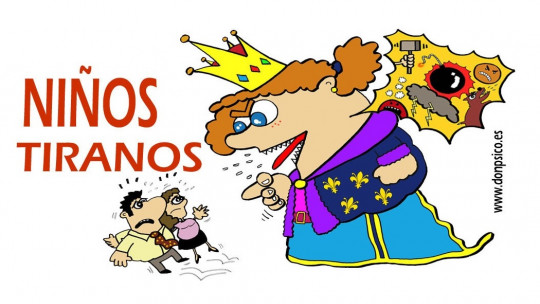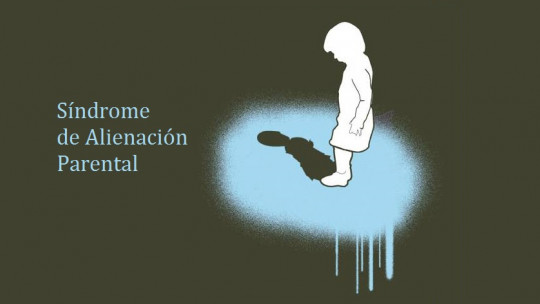
When we talk about Emperor Syndrome or Tyrant Child we refer to all a series of behaviors and attitudes of the child aimed at psychologically dominating the parents or other caregivers.
In the short term, these abnormal behaviors can cause problems in the family, such as anger, frequent shouting between parents and with their children, usually leading to isolated families, in which interactions with family and friends are reduced to a minimum.
In the long term, and if not detected and corrected in time, it could lead to violent teenagers Adolescents who could use, as we see too often lately, physical force to control and dominate their parents and even teachers.
What characteristics does the tyrant child present?
The first symptoms appear around the age of 6, with the greatest problems occurring around the age of 10 or 12, in both boys and girls.
Between the most relevant features we can point:
- They almost always appear sad or angry.
- They have an exaggerated sense of ownership. The phrase they like the most is: “It’s mine!
- Many times they use tantrums, tantrums or screaming to get what they want.
- They continually demand attention from their parents.
- They cannot stand frustration: they do not know how to take “No” for an answer.
- They always discuss the rules imposed on them.
- They do not recognize authority figures, neither at home nor at school.
What has happened for a child to exhibit this type of behavior?
1. Influence of parents’ educational style
In one generation, we have gone from a strict and somewhat authoritarian education to an education – in many cases – in which we do not know very well how to set limits for children. Parents do not assume the role of educators since, in general, little time is spent with their children during the week and it is others (grandparents, caregivers, etc.) who assume that role.
Some parents also They are afraid of frustrating their children and they do not want to impose almost any rules on them, avoiding, as much as possible, saying “No” to anything.
Other times, there is an obvious discrepancy between the parents themselves in how to educate the children, either due to lack of judgment, because the parents are separated or because there is simply a lack of fluid communication within the couple.
“The family is the basis of society and the place where people first learn the values that guide them throughout their lives”
—John Paul II

2. Social influence
Children are growing up in a consumerist society, where the immediate and what is achieved without effort prevails. A society, in short, that rewards quick and easy success.
Children They spend many hours watching television, exposing themselves to a series of hedonistic and individualistic messages where values such as discipline or respect are not reflected. This scenario is where parents who, most of the time, feel overwhelmed when raising their children must move.
“There is only happiness where there is virtue and serious effort, because life is not a game”
-Aristotle
What can parents do for their children’s education?
- Spend more “quality” time with your children: listen to them, talk to them, play, share…
- Do not try to be friends with your children Impose discipline and respect. Without ceasing, of course, to be affectionate with them.
- Establish clear rules and limits regarding the education of children.
- Prioritize consensus among parents The voice of parents must be “one” regarding the education of children.
- Do not impose punishments that are never fulfilled. Reinforce positive behaviors.
- Making children responsible little by little of certain tasks.
- Do not overprotect children Lose the fear of saying “No”. Frustrate their expectations from time to time.
- Do not label the child as “bad” or with any pejorative label.
“Educating a child is not making him learn something he did not know, but making him someone who did not exist.”
—John Ruskin








